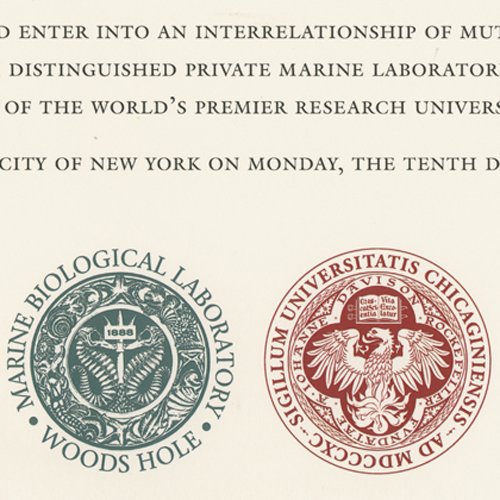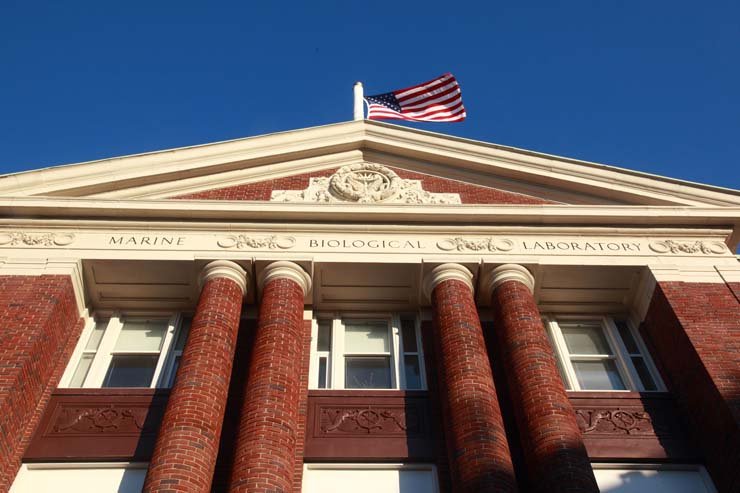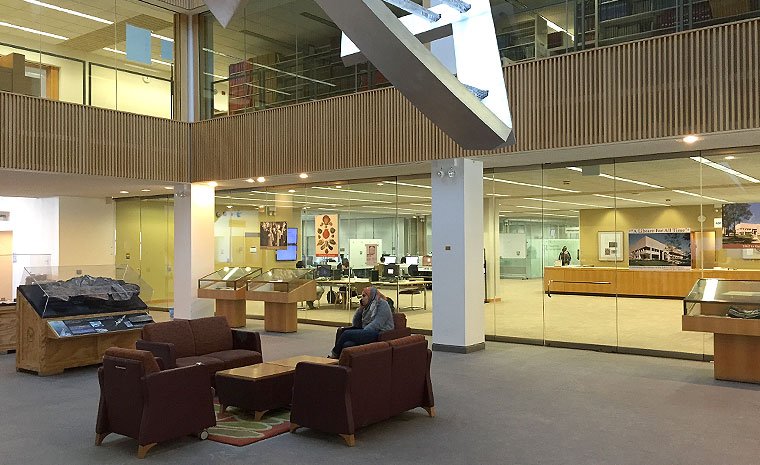Financial Difficulties
“The thing which makes the Laboratory [MBL] at present is the interest
and cooperation of the universities. That is its life and the essential
thing to keep uppermost … Your plan would, if I correctly understand
you, conserve the vital element and yet add to it the means of
development, not raising any issues that would excite rivalry. Whatever
you do for the Laboratory will come into full appreciation in time, even
if does not come into full light at once.”
C. O. Whitman to W.R. Harper, March 21, 1901.
"The spirit of independence and cooperation established and maintained at Woods Hole by Professor Whitman, although constantly streaked with abject poverty, has made there the ideal home for biology, as well as the most productive and famous scientific laboratory that America has yet seen. Whitman is the chief benefactor of this laboratory, for he has endowed it with the right ideals.”
From: “Resignation of Prof. Whitman as Director of the Marine Biological Laboratory at Woods Hole, Mass.” Anatomical Record, November 1908 (Vol. II, No. 8)
Throughout its history, the unique culture of the MBL, established by Whitman and embedded in its organizational bylaws, emphasized its independence and self-government by scientists from a multitude of universities and other research institutions, with no preference given to any particular ones. This culture, however, was in constant tension with the need to obtain the financial resources to support the Laboratory. Two early examples of this from 1901-1902 and 1923 are described in the sections "The Chicago Plan" and "Charles Crane". Although the University of Chicago had no formal affiliation with the MBL at the time, it did serve as a matchmaker for wealthy donors who would eventually provide substantial financial support.
C. O. Whitman to W.R. Harper, March 21, 1901.
"The spirit of independence and cooperation established and maintained at Woods Hole by Professor Whitman, although constantly streaked with abject poverty, has made there the ideal home for biology, as well as the most productive and famous scientific laboratory that America has yet seen. Whitman is the chief benefactor of this laboratory, for he has endowed it with the right ideals.”
From: “Resignation of Prof. Whitman as Director of the Marine Biological Laboratory at Woods Hole, Mass.” Anatomical Record, November 1908 (Vol. II, No. 8)
Throughout its history, the unique culture of the MBL, established by Whitman and embedded in its organizational bylaws, emphasized its independence and self-government by scientists from a multitude of universities and other research institutions, with no preference given to any particular ones. This culture, however, was in constant tension with the need to obtain the financial resources to support the Laboratory. Two early examples of this from 1901-1902 and 1923 are described in the sections "The Chicago Plan" and "Charles Crane". Although the University of Chicago had no formal affiliation with the MBL at the time, it did serve as a matchmaker for wealthy donors who would eventually provide substantial financial support.


